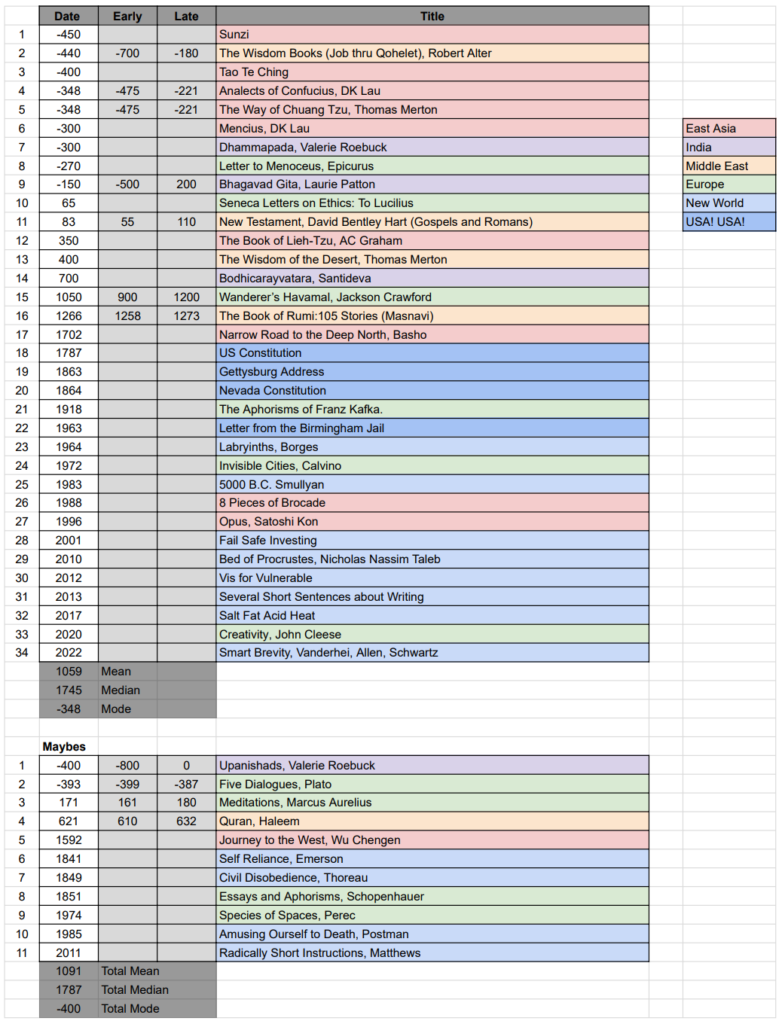While reading the Bodhicaryavatara, I was struck at its resonance with Christianity.
It has an intense focus on good and bad (defilement), a clear conception of hell, a strident moral directive evangelize (alleviate suffering), and even included a chapter of detailed logical argumentation to prove the another world is more real than our physical world.
I did not expect this Buddhist text to rhyme so closely to my experience as a reformed Baptist high schooler — there even multiple passages that even vilifies sexual desire!
Over the past few years, I had focused on Confucianism and Daoism which feels totally foreign from Christianity. I assumed Buddhism would be similarly alien from the religion of my childhood. It wasn’t.
I needed a quick primer on Buddhism to reset my expectations, and this short essay by Robert Eno delivered. It covered a lot of ground in a quick read and I enjoyed Eno’s slightly irreverent tone. Clearly, he has taught this material many times to sleep deprived college students.
~
To wildly speculate on parallels with Christianity, Buddhism came as a reform religion, stripping away calcified rituals, with an focus on (avoiding) the next life, and had an egalitarian imperative that energized it to spread across the continent.
In contrast, Confucianism and Daoism were uninterested in the question of salvation. These were elite philosophies that were wrestling with how to craft a state (or withdraw from the brutality of court politics) in the throes of a dying empire.
~
As a pantheistic atheist, I often worry about the old warning “if you believe in nothing you’ll believe in anything”. Hopefully I don’t fall into that trap, but I also can’t shake the intuition that billions of people can’t be all wrong. At the very least, there must something that has made these teachings worth transmitting to the next generation again and again over the millennia.
~
I never skip a chance to plug Robert Eno’s great chinatxt website. Go check it out.
I started a Great Courses lecture series by Malcom David Eckel, I’m enjoying it so far (two hours into the twelve hour course).
